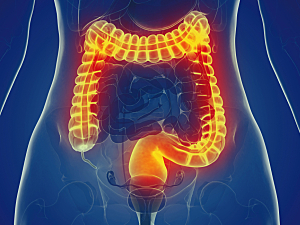Pregnant women who have inflammatory bowel disease (IBD) are more likely than those in the general population to undergo a Cesarian section. The reasons are unclear, as current guidelines are based on expert consensus informed by little data except for short-term neonatal outcomes only.
Sonia Friedman, MD, a gastroenterologist at the Center for Crohn’s and Colitis at Brigham and Women’s Hospital, Bente Mertz Nørgård, DMSc, MD, PhD, of the center, and colleagues conducted the first population-based study to evaluate postpartum surgical complications in women with IBD. In the Journal of Crohn’s and Colitis, they report strikingly higher rates of small bowel and colon surgery after Cesarian section than after vaginal delivery.
Methods
The researchers reviewed data from the Danish Medical Birth Registry, Danish National Patient Registry and the Danish National Prescription Registry and included all liveborn, singleton births from January 1, 1997, to December 31, 2015:
- Cesarian section—3,255 deliveries in women with IBD (44% acute Cesarian section) and 207,608 in women without IBD (59% acute Cesarian section)
- Vaginal—6,425 deliveries in women with IBD and 874,242 in women without IBD
16% of women with IBD who had a Cesarian section used immunosuppressive medications, within six months before delivery.
Cesarean vs. Vaginal Delivery in IBD Patients
The primary outcome was the risk of a surgical complication in women with IBD during the first 30 days postpartum:
- Either acute or elective Cesarian—adjusted OR (aOR) for small bowel or colon surgery, 5.00 (95% CI 2.00-12.51) vs. women who had a vaginal delivery
- Elective Cesarian—aOR, 6.52 (95% CI 2.45-17.33) for small bowel or colon surgery
- Acute Cesarian—aOR, 4.51 (95% CI 1.48-13.76) for small bowel or colon surgery
- Either acute or elective Cesarian and use of immunosuppressive medication—aOR, 8.79 (95% CI 2.86-27.05) for small bowel or colon surgery
- Either acute or elective Cesarian and no use of immunosuppressive medication—aOR, 4.49 (95% CI 1.74-11.58) for small bowel or colon surgery
Patients With vs. Without IBD
In secondary analyses the team compared 30-day rates of postpartum surgical complications in women with or without IBD who had a cesarian section:
- Surgery on the abdominal wall, peritoneum, mesentery or omentum—aOR, 2.39 (95% CI 1.44-3.98) in women with IBD vs. those without
- Small bowel and colon surgery—aOR, 9.97 (95% CI 5.51-19.05)
- Surgical treatment of bowel obstruction—aOR, 12.82 (95% CI 5.23-31.43)
The results were similar when restricted to either acute or elective Cesarean.
In addition, surgery on the kidney, renal pelvis, ureter, or urinary bladder was significantly more likely (aOR, 2.32 (95% CI 1.17-4.57)) in women with IBD.
Applying the Results to the Clinic
Physicians should consider Cesarian deliveries the exception rather than routine for women with IBD. Of course, it’s important to help patients maintain a healthy pregnancy to ensure fetal well-being, but we must also be careful not to worsen maternal outcomes.
